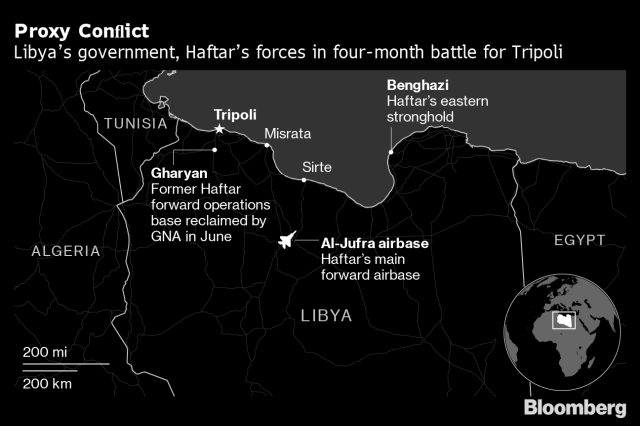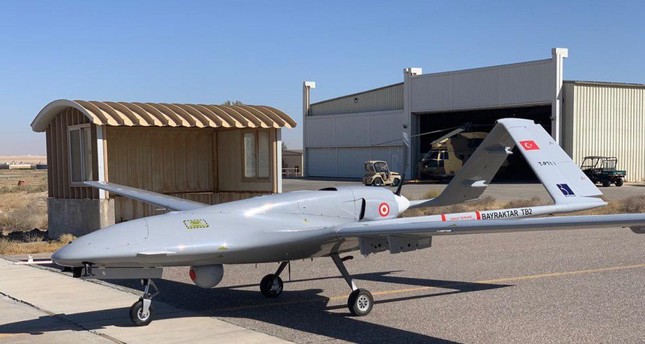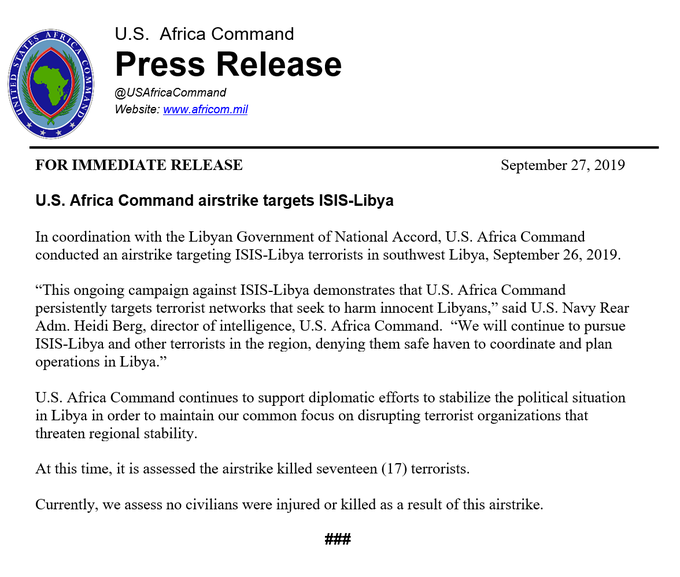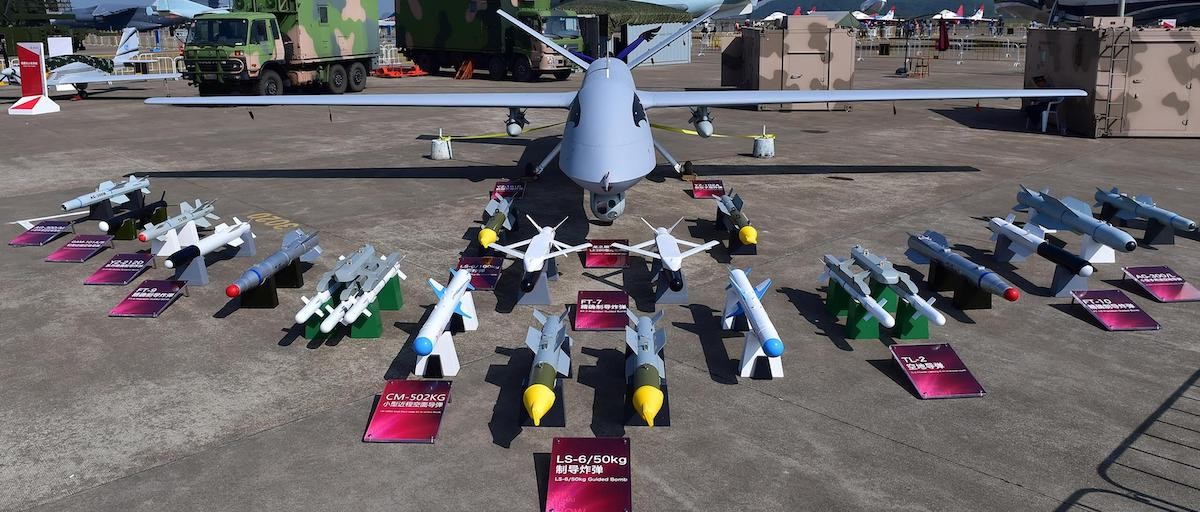On July 26, Libya’s internationally-recognized government announced a brazen air raid on a hangar housing drones deployed in support of rival commander Khalifa Haftar. A day later, his forces said they retaliated with strikes on a military base that sent fireballs into the night sky.
Neither side officially acknowledged the worst-kept secret of the North African state’s civil war: as the opponents face a stalemate on the ground, their backers in Turkey and the United Arab Emirates are engaged in an aerial campaign that’s seen them target each other’s unmanned planes in a bid to determine Libya’s future in their favor.
The Tripoli government’s attack on the airfield in Jufra was carried out by Bayraktar aircraft owned and operated by Turkey, according to two Western diplomats and a Libyan official, who all spoke on condition of anonymity. The U.A.E. struck back with Chinese-made Wing Loong drones, according to the two diplomats and an Arab official, targeting Bayraktars located in the coastal city of Misrata. Airstrikes have also destroyed three Ukrainian cargo planes supplying both sides.
Regional and European powers have competed for influence in the oil-rich country for years, but Haftar’s offensive to capture the capital in April sparked an escalation in foreign intervention that has prolonged and deepened the conflict, sidelining United Nations efforts to seek a negotiated peace.
“The fact that these local actors can turn to outside factions is a disincentive for them to come to the table,” said Frederic Wehrey, senior fellow in the Middle East program at the Carnegie Endowment for International Peace. “They’ve got a stream of weapons” to tap.
The U.S. indicated tentative support for Haftar, who’s based in the eastern city of Benghazi, once his assault was underway and France has quietly supported both sides. But for the most part, Washington, with more pressing priorities elsewhere in the world, has watched as some of its most important Middle East allies battle for dominance in an OPEC state with Africa’s largest oil reserves.
Libya has been under a Security Council arms embargo since 2011, when NATO-backed rebels overthrew Muammar Qaddafi and the country became fractured by infighting, creating a security vacuum that allowed jihadists and people smugglers to flourish.
But the sanctions are among the world’s least enforced. The European Union’s Operation Sophia, originally intended to intercept human trafficking across the Mediterranean and later extended to include the weapons ban, has little chance of intercepting arms shipments.
Turkey’s Agenda
Oded Berkowitz, an Israeli security analyst, said in an interview he’d verified through open source images the deployment in Libya of Russian-made Pantsir surface-to-air missile systems and several types of armored vehicle manufactured by Turkey and the U.A.E.










